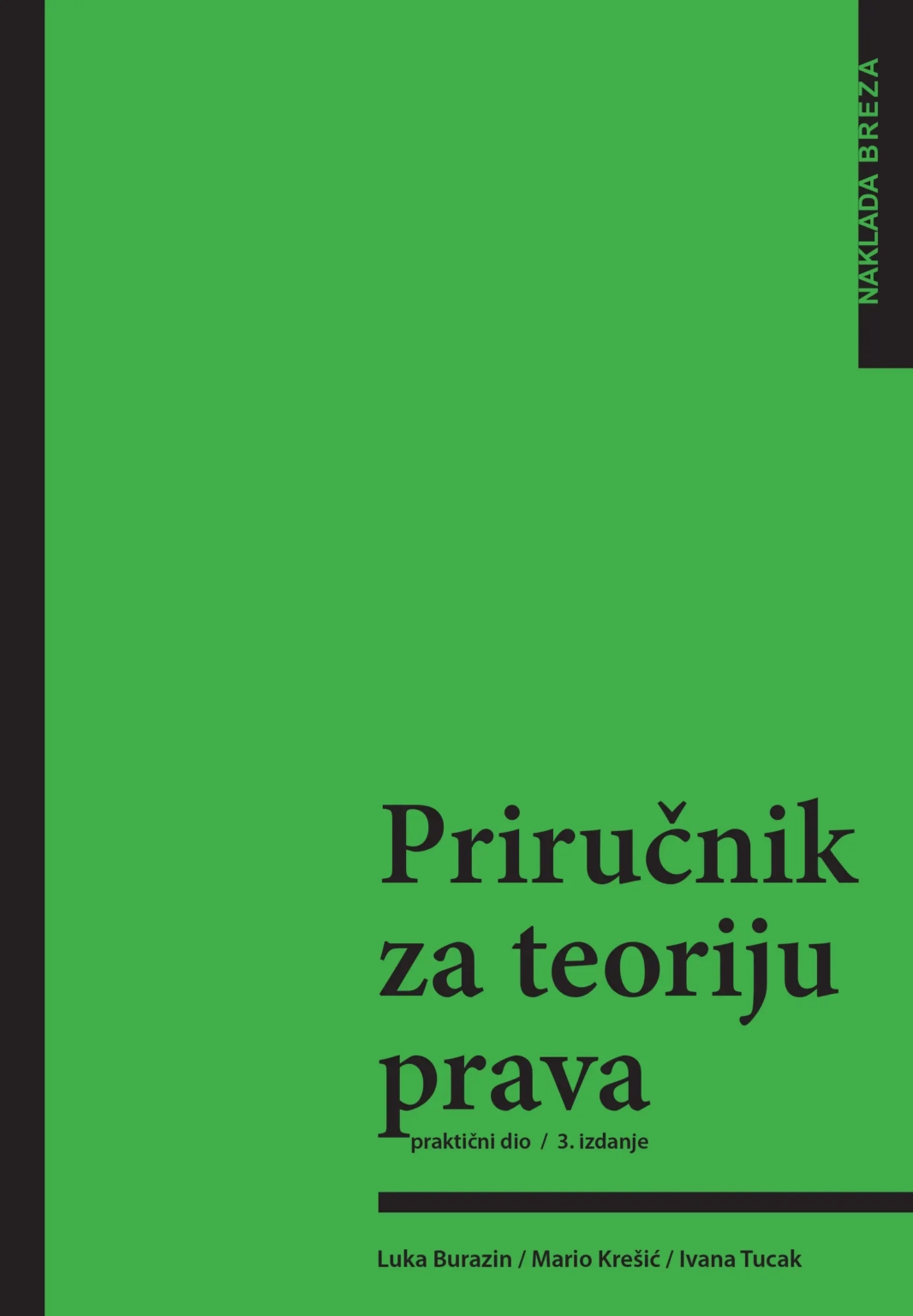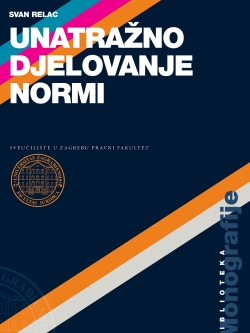
The 3rd edition of the Handbook for Legal Theory (authors: L. Burazin, M. Krešić, I. Tucak) has been published by Naklada Breza.
The Handbook presents basic concepts suitable for describing and analyzing law using examples from Croatian legislation and case law. It illustrates, through concrete examples, various types of legal norms, subjective rights, constitutional court techniques (such as constitutional overinterpretation, conforming statutory interpretation, and balancing of principles), normative hierarchies, methods for resolving antinomies (lex posterior, lex superior, lex specialis), interpretation techniques, legal arguments (such as the ordinary meaning of words, legislative intent, a contrario, analogy, dissociation), legal construction techniques, and schemas for analyzing judicial reasoning.
The Handbook relies on analytical tools from R. Guastini’s book The Syntax of Law, Naklada Breza, 2025 (5th ed.).
The Handbook can be purchased via the publisher’s website (https://naklada-breza.hr/pravo/prirucnik-za-teoriju-prava-3-izdanje/).




